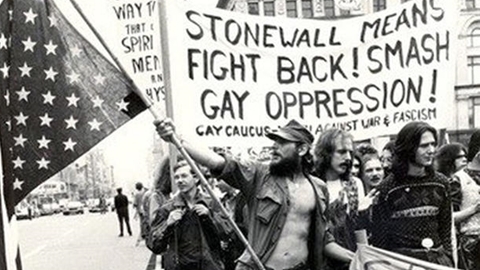A different time to be LGBTQ+

Right now is perhaps the best time in our history to come out of the closet. Those who identify as LGBTQ+ enjoy more legal protections and social acceptance than any generation that has gone before. For older LGBTQ+ adults, however, the climate was far less welcoming. Most came of age before the 1969 Stonewall Inn Riots, which are considered to be the start of the modern Gay Liberation Movement.
“The pre-Stonewall era was a time in which homosexuality was criminalized and considered a mental illness,” according to the 2016 LGBT Aging report from The Williams Institute at the UCLA School of Law.
It was also a time when psychiatrists tried to "cure" transgender individuals of their alleged mental disorder. (Choi, 2016, p.5)
The authors of the report explain, “Prejudice, stigma, violence, and discrimination prevailed throughout the social fabric and institutions of the U.S. . . . This social environment led many LGBT individuals to conceal sexual and gender minority identities (Morrow, 2001; Fredriksen-Goldsen & Muraco, 2010; Kimmel et al., 2006). As we study the population of older LGBT individuals in today’s more accepting social environment, we ought to consider the influences of the social environment on their life experiences, exposure to stress and resilience, and health along their entire life-course (Choi, 2016, p.5)."
How do we see that impact today? According to the Williams Institute report, older LGBTQ+ adults are 20% less likely than their straight counterparts to access government services such as housing assistance, meal programs, food stamps and senior centers (Choi, 2016, p. 6). The fear of stigma and discrimination also makes this population more likely to delay seeking health care and to avoid continuous care from the same health provider.
The report notes that those fears are rooted in fact.
“One respondent recalled how ‘when he got into the nursing home and they found out he was gay, they refunded him his money and threw him out’ (Czaja et al., 2015, p.6) (Choi, 2016, p.7)."
Another respondent shared his experience of witnessing nurse aids provide sub-quality care to an older gay patient because of their homophobia (Czaja et al., 2015). In a different study, a transgender older adult reported ‘One Navy doctor refused me care when a suture site related to my sex reassignment surgery became infected (Cook-Daniels & Munson, 2010, p. 156)' (Choi, 2016, p. 7)."
Featured Content
Read the full report for a more in-depth picture of the variety of ways discrimination, both then and now, impacts LGBTQ+ adults as they age.
LGBT Aging: A review of Research Findings, Needs, and Policy Implications.
References:
Choi, S. K., & Meyer, I.H. (2016, August). LGBT aging: A review of research findings, needs, and policy implications. Williams Institute, UCLA School of Law. https://williamsinstitute.law.ucla.edu/publications/lgbt-aging/
